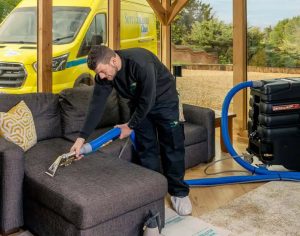Retail
and leisure parks have seen a significant shift in recent years and have
emerged as an increasingly attractive prospect for franchisees. In this
feature, Peter Schaverien, head of the out-of-town retail and leisure division
at retail property consultancy Harper Dennis Hobbs, explains how franchises can
make the most of the opportunities.
Data shows that store openings at retail parks rose above average in 2018, totalling 868 compared with the seven-year average of 819. In addition to this, despite the wider challenges across the retail sector, only 3 per cent of out of town units were affected by either a CVA or administration over the course of the year, and of those affected, only 36 per cent were earmarked for closure.
At a time when headlines are dominated by reports of the ‘impending death’ of the retail sector, it is important to note that people are still shopping and there are many success stories of retailers performing well. It is particularly encouraging to see out of town retail and leisure parks succeeding and offering an increasingly attractive alternative to the high street.
Retail parks have traditionally been categorised into either a fashion-led shopping park, dominated by brands like TK Maxx, New Look and River Island, or a DIY and homewares-dominated shopping park comprising of one-ticket, bulky item retailers like B&Q, DFS and Homebase.
However, over recent years we have seen a significant shift in the occupiers of retail, or shopping, parks with franchises increasingly filling vacant space left by following waning demand in the fashion and food and drink sectors.
Fitness groups such as Pure Gym, Orangetheory Fitness, Anytime Fitness, Snap Fitness and F45 are highly attractive propositions for landlords searching for a solution to fill large retail spaces. The rise in demand for drive thru outlets has also created opportunities for coffee and fast food franchises, led by the likes of Starbucks and Costa Coffee, as well as KFC and Burger King.
Casual dining has traditionally been dominated by major brands, such as Wagamama and Nando’s, but over recent years we have seen a major increase in the number of opportunities for franchise outlets.
The rise of gyms and casual dining outlets is also important to encourage more frequent returning customers. Whereas typical consumers may visit retailers such as B&Q or Homebase once a month or DFS once every few years, drive thrus, casual dining and gyms are far more likely to encourage customers to visit multiple times per week in some cases.
While the major brands are either focusing on international development, consolidating their portfolio or simply not looking to expand, franchises such as Subway, Papa Johns and Subway are seizing the opportunity to fill the void. German Doner Kebab is another franchise model that is thriving in this environment, with more than 35 sites already established in the UK.
There is no doubt that out of town parks present strong opportunities for franchises. Rents are increasingly negotiable and there will continue to be availability for franchise businesses to set up shop and take advantage of easy accessibility for shoppers, free or cheap parking, and other leisure attractions like cinemas and bowling alleys. These leisure outlets are also strong options for potential franchise owners, as trampoline parks and soft play parks in particular capitalise on demand from consumers for experienced-based activities.
Over the next few years, this market is expected to continue to grow as virtual reality (VR) becomes the next major franchise trend that I expect those with a successful portfolio to explore. PwC predicts that the UK’s VR market will be worth more than £1.2 billion by 2022, making it the fastest growing segment of the UK’s entertainment and media sector, and out of town units offer a great location for franchises in this space.
When considering expanding a franchise business on a retail or leisure park, many owners will be keen to operate in their own area and manage their portfolio from where they live. As with any property decision, the usual fundamental applies that location is the most critical factor.
Conventional brands are doing well on shopping parks in particular and a strong retail or leisure anchor can also be critical to the success of a franchise. Click and collect is making a big difference on footfall, particularly on retail parks which benefit from the aforementioned consumer convenience, with Next one of the retailers benefitting.
It goes without saying that busier is often better, but it is important to assess what else is on offer at a particular location and where your product will fit in. A better location will often come with higher rents and it is also vital to balance risk and reward without overstretching yourself.
Another major consideration for franchises looking to expand on retail and leisure parks is the importance of attracting shoppers for multiple visits during the week, rather than just at the weekends. Again, assessing the current occupants of a site is important, with grocery retailers attracting regular footfall between Monday and Friday.
Perhaps unsurprisingly, the German discounters are major drivers of the out of town retail growth. Lidl, which is now the fastest growing supermarket in the UK, recently announced plans to invest more than £1 billion to expand over the next two years to help reach its target of 1,000 stores by 2023.
It is important to create a new way of looking at parks. Franchises will never be the saviours of an out of town industrial park with a single B&Q store, but huge opportunities exist in thriving shopping and leisure parks.
For shopping parks, the perfect scenario is an ecosystem inhabited by a mix of big-ticket retailers, fashion brands, casual dining and drive thru or take away outlets, to attract regular and consistent footfall throughout the week.
There is a reason that retailers have been taking advantage of shopping parks for so long and franchisees should undoubtedly be looking into the potential to capitalise on this space. Rents are increasingly competitive, there is often space to be filled and franchises are among the retail businesses offering the strongest growth.



































